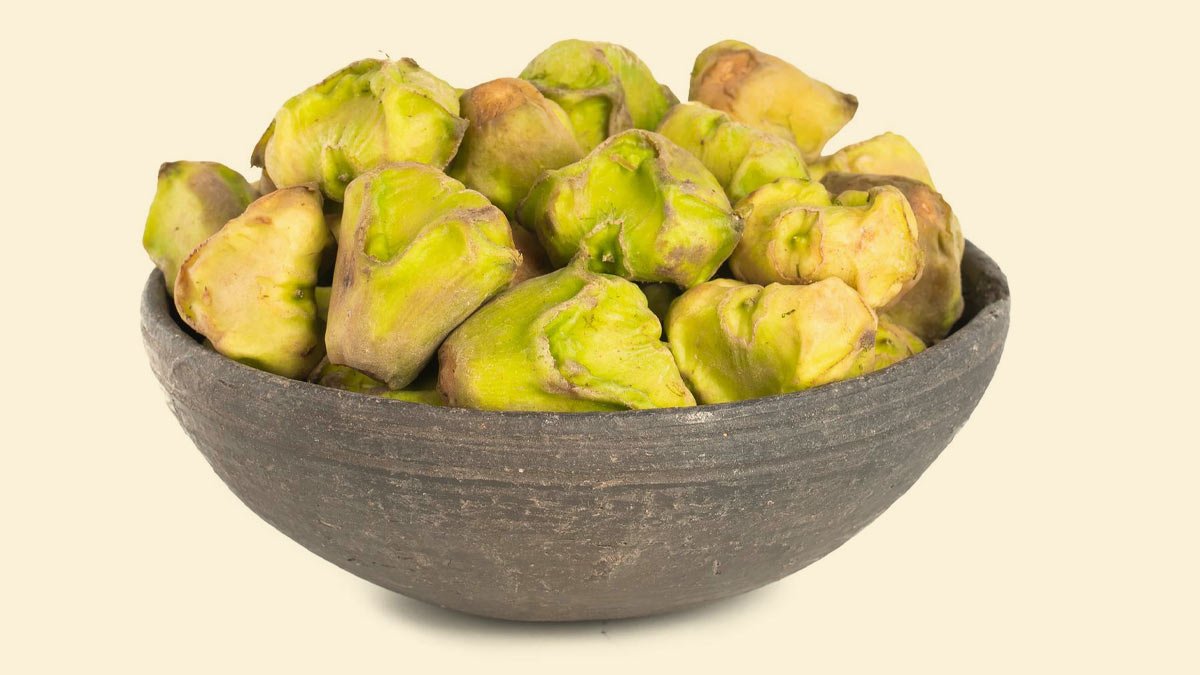Walnuts are nuts that are harvested from any species of trees that belongs to the family Juglans. The Walnuts Nutrition Facts has two most common major species, the English walnut that originated in Persia, and the black walnut which is native to eastern North America.
Walnuts have had a special place in the diets of many civilizations. The Romans called them “Jupiter’s royal acorn” or “nuts of God” and considered them to be a symbol of fertility, and distributed them at their weddings. In ancient Greek and medieval Britain, walnut nutrition were used by doctors to treat mental illness. They have also been described in the ancient Chinese history.
Walnuts were introduced in the United States in the 18th century by the Spanish missionaries and since then California has become the largest producer of walnuts in the world today.
Walnuts are recognized as a superfood because of their high content of protein, dietary fiber, nutrients and minerals.
Going through this article will help you understand why walnuts are maybe the king of nuts and the health walnut benefits you can get by adding them to your diet.
Interesting facts About Walnuts
Technically a walnut is the seed of a drupe or drupaceous nut, and therefore not a real botanical nut. Walnuts are one of the oldest tree food recognized to man, beginning back to 7000 B.C. Early history shows that English walnuts came from early Persia, where they were kept for royalty. Thus, the walnut is often recognized as the “Persian Walnut.”
A Walnut tree is a large, deciduous tree accomplishing heights of 25–35 meters (80 to 120 feet), and a trunk up to 2 meters (6 feet) diameter, usually with a small trunk and broad head, though higher and narrower in dense forest competition. It is a light-demanding variety, requiring full sun to develop well.
China is the highest producer of walnuts in the world, providing nearly half of the global walnut quantity. The United States is the second-largest generator of walnuts, considering approximately one-third of the total world stock. California is the nation’s number one walnut farmer, accounting for almost all walnuts produced in the U.S.
Although industrial walnut orchards usually have a life prospect of 60-100 years, in favorable conditions walnut trees can live for 300 years or more.
Nutritional Value of Walnuts
Thomas and Gebhardt (2006) had led extensive research on the nutritional facts about walnuts that have been published by the USDA National Nutrient Database for standard reference. Here you will observe that how many calories in walnuts. The primary nutritional facts from this research are listed here.
Walnuts carry the strength of 190 calories per ounce or 30 grams.
The Carbohydrate content per ounce is 4 grams.
A protein located in 1 ounce is 4 grams.
The total fat content located in 1 ounce is 18 grams, which involves both unsaturated fats and saturated fats.
Dietary fiber seen in them is about 2 grams per ounce.
The minerals seen in them include magnesium, phosphorus, copper, manganese, potassium, sodium, calcium, iron, zinc, and selenium.
Vitamins combine riboflavin, niacin, pantothenic acid, vitamin B6, vitamin C, thiamine or vitamin B, folate, vitamin B12, vitamin E, vitamin K, and vitamin A. Carotenoids located in them include beta-carotene, lutein, and zeaxanthin.
Phytosterols in walnuts are about 20 mg per ounce.
Walnut benefits for your health
Rich in ellagic acid, fatty acids, and vitamins, walnut helps your immune system, heart well-being, and skin.
The vibrant history of the walnut
The slow-motion, the rhythm of rubbing walnuts gives one’s spirit feel relaxed and relaxed,’ an elderly Chinese man revealed to German scholar Ernst Cordes. ‘Oh, this thing of walnuts is the true magic of rubbing your soul.
Many years on from this unusual discussion, marked by Cordes in 1937, our love of walnuts is yet going strong. In China the physical shell which so enchanted the elderly man is still highly valuable. Beautifully carved shells are still made there, some falling to tens of thousands of pounds in value.
Over in Europe, Leonardo da Vinci and Rembrandt used colors made from walnut shells in their work.
While we cherish the walnut’s aesthetic value, we prefer making use of this amazing nut to take care of our bodies. Funnily sufficient, in the same year that Cordes was being trained in the art of walnut rubbing, Russian scientist Gergelezhiu was staring into the goods hidden inside the nut. He found that unripe walnuts included a significant amount of vitamin C.
Much more has been found about walnut benefits since then. Modern science gives us plenty of proof as to why walnuts are great for us.
So, without additional ado, let’s examine how this beautiful little nut can promote your health.
Walnut goods on heart health and cognitive health
A big watershed time for the walnut came in 2004 when the US Food and Drug Administration (FDA) placed its real stamp on the role of walnuts in heart health.
The FDA approved walnut manufacturers to add these words to their packaging: Supportive but not final research reveals that eating 1.5 ounces (28 grams) of walnuts per day, as the role of low saturated fat and low cholesterol diet, and not resulting in improved caloric intake, may decrease the chance of coronary heart disorder.
Why is this? Well, most nuts are generous in monounsaturated fatty acids. Walnuts and walnut oil, on the other hand, are rich in polyunsaturated fatty acids which carry more than one double bond in their composition.
These acids make up the majority of the fats in walnut oil and carry alpha-linolenic acid and linoleic acid. These are the two primary fatty acids that your body cannot produce itself.
Alpha-linolenic acid (ALA) is an omega-3 fatty acid that your body converts into eicosapentaenoic acid (EPA), and docosahexaenoic acid (DHA). These are long-chain omega-3 fatty acids.
These special acids have been judged necessary for healthy aging and also support cardiovascular health. Separate research found that EPA and DHA could support prevent deterioration in cognitive function.
This seems especially appropriate given that walnuts famously look like the human brain. No wonder they’re often called ‘brain food’!
Walnuts have also been observed to improve endothelial capacity. This means that walnuts help the stuffing of blood vessels to perform better. Raw walnuts are also impressively strong in minerals including magnesium, vitamin B6, iron, and potassium.
Walnut oil: liquid Gold
A beautiful, gleaming gold in color, unrefined walnut oil originates from walnuts that are drained and then cold-pressed.
According to the American Journal of Clinical Nutrition, one tablespoon of walnut oil a day contributes 1.4 grams of ALA. The recommended daily intake of ALA for men is 1.6 grams; for women, it is 1.1 grams. So, a tablespoon or two of walnut oil can support you give your intake with satisfaction.
The previously specified study into the use of walnuts to fight loss in cognitive capacity due to aging found that walnut oil guarded cells against oxidative stress and inflammation.
Walnut oil also includes melatonin, which supports the body keep time. This can be of excellent help to people experiencing insomnia. Altogether, you could think of walnut oil as fine-tuning your internal clock and maintaining all the gears run smoothly.
Walnuts Nutrition Facts and Health Benefits
- Walnuts are and amazing source of omega-3 essential fatty acids. They have many vast benefits for the human health including cardiovascular health, improvement of brain functionality, and protection from anti-inflammatory and inflammatory diseases.
- Walnuts have ellagic acid. This nutrient has antioxidant properties and it makes the immune system strong and has anti-cancer characteristics.
- walnut calories are a rich source of biotin. It prevents hair loss, brittle nails, and skin rash in infants, diabetes, and mild depression.
- Walnuts are a good source of Manganese. This mineral helps the body to produce connective tissues, bones, blood clotting factors, and sex hormones. It also plays a role in fat and carbohydrate metabolism, calcium absorption, and blood sugar regulation. Manganese is also necessary for normal brain and nerve function.
- Walnuts are a good source of Copper. As a mineral copper help form collagen, a key part of bones and connective tissue. It may also act as an antioxidant, reducing free radicals that can damage cells and DNA.
- Walnuts are a good source of Molybdenum. This nutrient serves mainly as an essential cofactor of enzymes and aids in the metabolism of fats and carbohydrates.
- Walnuts have Calcium. This mineral plays many vital functions, it strengthens the bones and teeth, helps our blood clot, nerves send messages and muscles contract.
- Walnuts are a rich source of Iron. Iron is used by the body to perform many functions. It helps the blood to carry oxygen in the body and helps the muscles to store oxygen.
- Walnuts are a rich source of dietary fiber. Dietary fiber promotes the movement of food through the digestive system. It benefits those who struggle with constipation or irregular stools.
- Walnuts are a high source of Potassium. This mineral is an electrolyte and conducts electricity in the body. Potassium is also used for many other vital bodily functions.
- Walnuts are a rich source of protein. The body uses protein to build and repair tissues. It is also used to make enzymes, hormones, bones, muscles, cartilage, skin, and blood.
- Walnuts consumption prevents prostate and breast cancer.
- Eating walnuts produces serotonin, a chemical that give you a full feeling and aids in weight loss.
- Walnuts consumption protects against age related muscular degeneration.
- Walnuts lower cholesterol levels in the body.
- Walnuts are recommended for patients with liver ailments.
Walnuts – Smart Heart and a Strong Brain
Walnuts Nutrition is the most magnificent tree fruit known to man, beginning back to 7000 B.C. After a walnut tree is located, it takes five to seven years for it to turn into an adult tree fitting for collecting. The collection begins in late August when the drying green shells start to break, allowing the in-shell walnuts to be separated and proceeds until late November.
The California Walnut is well known as the first-class walnut for the world. Walnuts Nutrition Facts, in common, are high in calories, so balance is the key. The best approach is to reap the health advantages of eating walnuts but not add unnecessary calories to your daily intake.
Therefore, instead of just adding Nutritional Benefits of Walnuts to your current diet, eat them in replacement of foods that are high in full fats, and limit your consumption of these tasty feasts. to the recommended 1.5 ounces per day. That is about 20 walnut halve.
Read Also: 13 Reasons to Eat Walnuts Every day! Health Benefits of Walnuts
Walnuts Protect Arteries after High-Fat Meal
Walnuts are rich in fiber, B vitamins, magnesium, and antioxidants such as Vitamin E. Nutritional Value of Walnuts, in usual, are also great in plant sterols and fat – but essentially monounsaturated and polyunsaturated fats (omega-3 fatty acids, in particular, alpha-linolenic acid ALA) that have been exposed to lower LDL cholesterol. Walnuts, really, have significantly larger amounts of ALA omega-3fatty acids related to other nuts.
Active for Heart: Black Walnut Cafe Nutrition is rich in polyunsaturated fatty acids, which may enhance blood lipids and other cardiovascular disorder risk circumstances.
Healthy Bones: Walnut oil Nutrition and flaxseed as origins of dietary omega-3 polyunsaturated fatty acids have a protecting effect on bone metabolism by a reduction in bone resorption in the appearance of normal levels of bone structure.
Diabetes: A walnut-enriched intake increases endothelium-dependent vasodilatation in people with type 2 diabetes, therefore decreasing overall cardiac hazard. A diet enriched with walnuts may impact people with diabetes.
Protect Arteries: Walnuts, a rich source of the omega-3 fat, Alpha-Linolenic Acid (ALA), increase artery capacity after a high-fat meal.
Lowers Whole Cholesterol, lowers LDL Cholesterol and improves the HDL to complete cholesterol proportion. Restrains free radical harm to LDL Cholesterol and Lowers Lp(a) – a lipid mixture that increases blood clotting and, when raised, is estimated as a risk factor for atherosclerosis. Gallstones. It helps to prevent gallstones.
A simple and fulfilling snack on the go Walnuts Nutrition Info is nature’s method of telling us that good thing comes in small units. These bite-size nutritional substations are packed with heart-healthy fats, proteins, vitamins, and minerals.
Walnuts with their coveted buttery taste give an excellent test for any topping or coatings. We are going to tell 11 benefits of walnuts to maintain your perfect weight need to lose. A few undesired pounds or having difficulty keeping weight off, appending Black Walnut Nutrition to your food can help you to manage your perfect weight.
And the advantage was gained in the first three months attempting to beat the sugar addiction by eating 1/4 cup natural walnuts every day. Your sugar requirements will be greatly lessened helps to rest better. Do you ever imagine to yourself on those sleepless nights melatonin happens simply in walnuts, which is an efficient sleep assistant Walnut Nutritional Info also helps to reduce the effects of jetlag anti-aging benefits.
7 Top Reasons to Eat Walnuts
- Cancer-Fighting Properties
- Rare and Powerful Antioxidants
- Weight Control
- Improved Reproductive Health in Men
- Brain Health
- Diabetes
- Heart Health
If you fight with herpes, you may want to avoid or limit walnuts, as high levels of arginine can consume the amino acid lysine, which can trigger herpes recurrences.
Walnuts also include the plant-based omega-3 fat alpha-linolenic acid (ALA), which is anti-inflammatory and may block the formation of unhealthy blood clumps. Study reveals that people who eat nutrition high in ALA are less likely to have a deadly heart attack and have a nearly 50% lower risk of unexpected cardiac death.
1) Cancer Fighting Properties
Walnuts are a fantastic energy supporter feeling a few sluggish around mid-morning tries a few of walnuts and raisins to keep power levels up during the day. This forms walnuts a great pre-workout meal as well omega-3 fatty acids correlated with other drained fruits.
Walnuts carry the highest amount of omega-3 fatty acids; just one ounce of walnuts holds 2.5 grams of alpha. I remember Aleena cast, also known as polyunsaturated fat, which is required for the diet, benefits to fight from cancer. Walnuts may help decrease not only the risk of prostate cancer but breast cancer as well.
2) Rare and Powerful Antioxidants
Walnuts also include antioxidants molecules able to slowing or stopping oxidation. So eating foods with antioxidants can guard your cells against much caused by aging or Sun core health. More than a decade of scientific proof reveals that including walnuts in a healthy diet decreases the risk of heart disorder by improving blood vessel flexibility and plate growth. Walnuts contain the amino acid l-arginine, which gives multiple vascular advantages to people with heart disease or those who have raised risk for heart disease.
3) Best Time to Eat Nuts for Weight Loss
Over time according to one study, those whose foods added extra nuts or nuts supplanted for other diets lost about 1.4 extra pounds and half an inch from their waists. Eating walnuts is also connected with improved satiety after just three days by eating four to five walnut shares a day having. An otherwise healthy diet and including exercise on an everyday basis walnut can speed up your metabolism and help in losing weight.
4) Walnut Benefits for Men’s Health
One of the lesser-known advantages of walnuts is the result of male potency. Amongst men who eat Western-style food, it is adding 75 grams of walnuts every day significantly increased sperm quality, including energy, motility, and morphology.
5) Brain Health
It is best Brain Food. Your mind is more than 60% Structural Fat. For your brain cells to work correctly, this structural fat wants to be necessarily the omega-3 fats located in walnuts, flaxseed, and cold-water fish.
6) Diabetes
Faster, diabetes, the helpful dietary fat in walnuts has been conferred to improve metabolic parameters in people with type 2 diabetes. Overweight adults with type 2 diabetes who ate one 2/4 cup of walnuts every day had notable decreases in fasting insulin levels related to those who did not.
7) Healthy Heart
Due to multiple cardiac risk factors, they may also decrease many of the danger agents for a heart disorder, particularly when connected with another healthful lifestyle. A way of having just four walnuts a day has been proved to increase blood levels of heart-healthy ala significantly and walnut eating supports healthy cholesterol levels. Research showed that eating only one ounce of walnuts a day may reduce cardiovascular risk.
Effects of Aging and Walnut-rich Diet
Full of vitamins, this wonderful nut is packed with nutrients that guard our sensitive skin. Vitamins A C and D are often seen in skin creams that pretend to make us look more youthful.
Walnut is one of the best foods that battle aging by guarding our skin toward sun damage and climatic pollutants. This nut seems to be one of the super foods that include skin-saving vitamins a b c and e naturally. Walnuts support to increase memory for development memory tries eating about ten walnut halves every day.
This may decrease the risk or delay the onset of Al’s I’m Rhett TMS syndrome. Lab investigations have explained that nutrition containing at least 2% walnuts may modify age-related motor and cognitive deficiencies to boost energy levels.
Black Walnut Nutrition
The black walnut has been used for many years in history, including within Russian, Chinese, and Native American cultures. Today, the study shows that these nuts eject parasites, promote heart health, defend against specific cancers, and heal malaria, as well as bacterial and fungal infections.
What are the Major Black Walnut Nutrition Facts?
Its fruit, shell, and leaves contain an active ingredient called juglone, which is useful against Helicobacter pylori tobacco miscellany virus, and infections.
Plumbagin is a quinoid element found in black walnut with neuroprotective, antimalarial, and anti-cancer qualities. Other active ingredients include myricetin, quercetin, kaempferol, taxifolin, beta-sitosterol, stigmasterol, 1-alpha-tetralone derivative. Black walnut is also a great source of polyphenols, antioxidants, and monounsaturated fatty acids. Melatonin and phytosterols are also already in these nuts.
One ounce of black walnut also includes 2.8 grams of carbs, 1.9 g of fiber, and 6.7 g of protein. And, from a mineral viewpoint, it is very high in manganese, copper, phosphorus, and magnesium. It also includes calcium, zinc, iron, potassium, and selenium. From a vitamin prospect, these walnuts also include vitamin A, vitamin B1, vitamin B2, vitamin B3, vitamin B5, vitamin B6, folate, vitamin C, vitamin E, vitamin K choline, and betaine.
Are Walnuts Good for Prostate Cancer?
In one research, mice that ate the personal equivalent of two-point four measures of whole walnuts for 18 weeks had significantly less and slower-growing prostate tumors linked to the control group.
That used the same amount of fat, but from other references, overall, the total walnut diet decreased prostate cancer growth by 30 – 40%. FDA authorized health benefits in 2003 the FDA acknowledged the benefits of nuts and their role in heart disorder, stopping by supporting a health profession for seven kinds of nuts Almonds vs Walnuts Nutrition hazelnuts peanuts pecans some pine nuts pistachios and walnuts.
These seven nuts were recommended as they are the only classes that contain less than four grams of saturated fats per 50 grams in answer to a supplication filed by the California Walnut Commission.
Best Way to Store Walnuts
Cold Storage Reaches Fresh Taste. The best place to save your walnuts is in the refrigerator if you’re intending to use them right away. If you are stocking them for a month or longer, store them in the freezer.
Prep As Required. The only shell, cut, or grind walnuts right before using them to help keep the great flavor.
Keep Air Out. If you buy walnuts in sealed packaging, you can put them in their original packaging. Once you open the sealed bag, or if you buy walnuts in the majority, transfer them into a sealed container to maintain freshness.
Know When They’ve Gone Bad. Walnuts can go bad when exposed to warm heat for long periods. If your walnuts have a sour odor or taste, it’s time to chuck them out!











